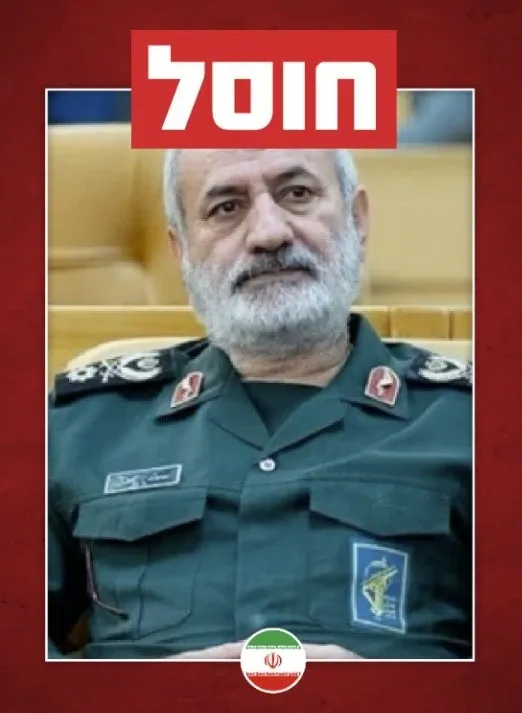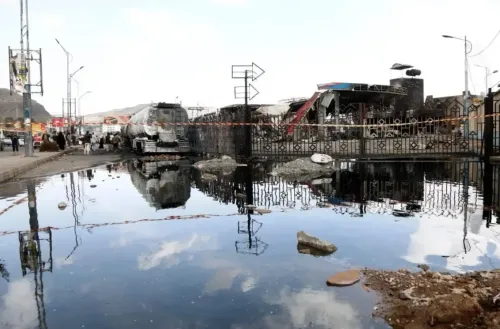Did Israel Successfully Target Top Iranian Intelligence Officials in Tehran?

Synopsis
Key Takeaways
- Four high-ranking Iranian officials were killed in an Israeli airstrike in Tehran.
- The operation signifies escalating tensions in the region.
- The IDF claims to have achieved total aerial dominance over Tehran.
- Israel has reportedly destroyed over 120 Iranian ballistic missile launchers.
- The airstrike targeted key figures integral to Iran's intelligence operations.
Tel Aviv, June 16 (NationPress) On Monday, Israel declared that four senior Iranian intelligence officials, including the chief of the Intelligence Organisation of the Islamic Revolutionary Guard Corps (IRGC), were eliminated in a precise airstrike executed by Israeli fighter jets in Tehran.
The Israel Defense Forces (IDF) reported that the operation took place on Sunday night, aiming at a facility in the Iranian capital where prominent intelligence figures were gathered.
"Yesterday, Air Force fighter jets attacked, utilizing precise intelligence from the Intelligence Division in the Tehran area, a location where several high-ranking officials from the Iranian regime's intelligence organizations were present," the IDF stated in a post on X.
Among those killed was Mohammad Khatami, the head of the IRGC Intelligence Organisation since 2022, along with his deputy Mohammad Hassan Mahkaghi.
The IDF accused Khatami of overseeing surveillance, quelling dissent, and planning terror operations abroad. His deputy, Mahkaghi, who previously led the Strategic Intelligence Department, was described as a key player in Iran's aggressive intelligence initiatives aimed at Israel and other regional entities.
The airstrike also resulted in the deaths of Muhsin Baqri, who headed the Quds Force's intelligence department, and his deputy Abu al-Fachel Nikoui. The IDF claimed that the Quds Force officials played a crucial role in collaborating with foreign militant organizations like Hezbollah, Hamas, the Houthis, and Iraqi militias.
"Nikoui was significantly involved in Iran's strategy to embed itself in Syria and enhance Hezbollah's capabilities in Lebanon," the IDF noted.
According to the Israeli military, this operation follows the recent elimination of the head of the General Staff's Intelligence Department, delivering a substantial setback to Iran's intelligence framework and its ability to execute attacks against Israel.
In a briefing on Monday, IDF Spokesman Brigadier General Effie Defrin claimed that the Israeli Air Force (IAF) achieved "total aerial dominance" over Tehran.
He asserted that Israel had already dismantled a third of Iran's ballistic missile launchers and was effectively disrupting large-scale Iranian offensives.
Defrin revealed that Iran launched 65 ballistic missiles and numerous drones toward Israel in two separate attacks on Sunday night and Monday morning.
Most of the missiles were intercepted, but three strikes resulted in eight fatalities. He also mentioned that the IAF intercepted 20 ballistic missiles on the ground in Iran before they could be fired.
The IDF further reported that around 50 Israeli fighter jets and drones targeted Iranian missile storage sites and command centers coordinating missile launches.
Since the conflict escalated, Israel claims to have destroyed over 120 Iranian ballistic missile launchers.
Moreover, overnight strikes were executed in Isfahan, where the IAF targeted more than 100 military installations, extending its campaign to weaken Iran's strategic capabilities.









